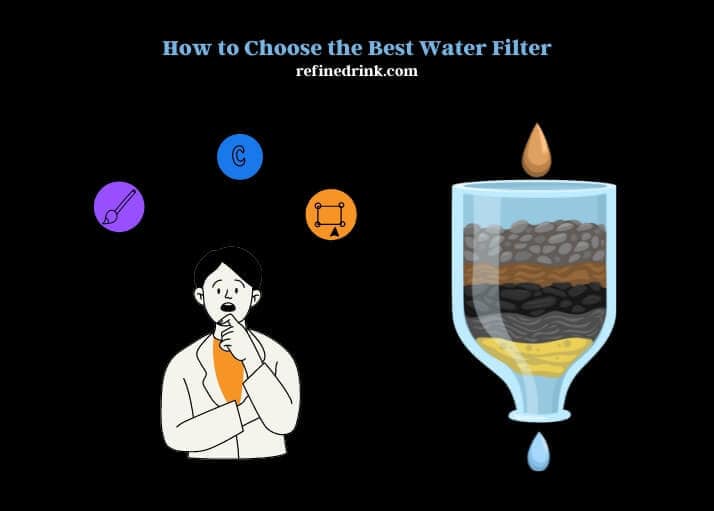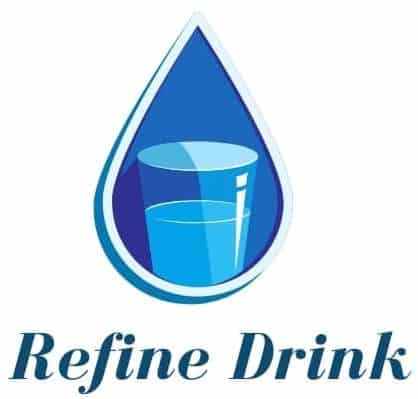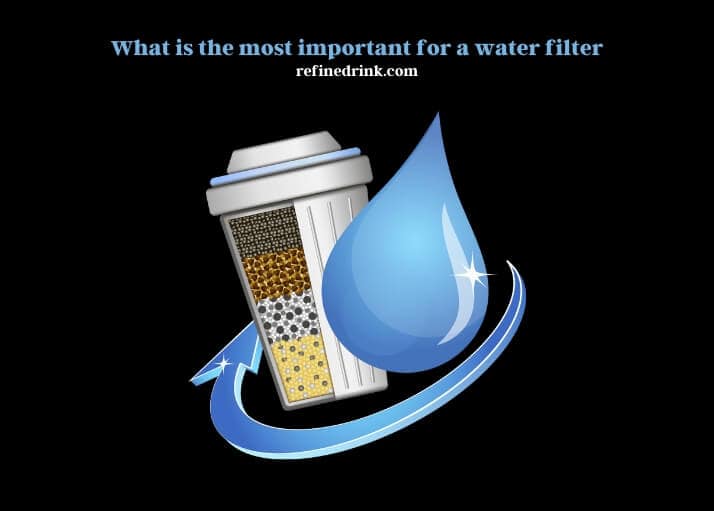“Ensure purity with the most important water filter features. Our advanced technology guarantees optimal filtration for clean, safe water. Trust our quality for a healthier home. Explore now!”
In a world where water quality is becoming an increasing concern, having a reliable water filter is crucial for ensuring access to clean and safe drinking water. Water filters play a pivotal role in removing contaminants, impurities, and unwanted substances, providing you with water that not only tastes better but also promotes better health.
In this comprehensive guide, we’ll explore the importance of water filters, how they work, and address frequently asked questions to help you make an informed decision.
What is the most important for a water filter
A high-quality water filter should efficiently remove impurities, contaminants, and unwanted particles, providing a reliable barrier against harmful substances. The filtration system’s design, technology, and capacity play pivotal roles in achieving optimal results.
Additionally, ease of maintenance and durability contribute to long-term functionality. Choosing a water filter with a focus on these key factors not only safeguards health but also guarantees a consistent and refreshing water supply for your household.
Section 1: The Significance of Water Filters
Subsection 1.1: Protecting Your Health
Water filters act as a barrier against harmful contaminants such as bacteria, viruses, and heavy metals, safeguarding your health and well-being. By eliminating impurities, water filters ensure that the water you consume is free from potential threats, reducing the risk of waterborne diseases and long-term health issues.
Subsection 1.2: Enhancing Taste and Odor
Beyond health benefits, water filters significantly improve the taste and odor of your drinking water. By removing chlorine, sediment, and other undesirable elements, water filters create a refreshing and pure drinking experience, encouraging you to stay hydrated.
Section 2: How Water Filters Work
Subsection 2.1: Filtration Mechanisms
Water filters employ various filtration mechanisms, including activated carbon, reverse osmosis, and UV sterilization. Understanding how these methods work will help you choose the right water filter for your specific needs.
Subsection 2.2: Types of Water Filters
Explore different types of water filters, such as pitcher filters, faucet-mounted filters, and under-sink filters. Each type caters to different preferences and household requirements, offering versatility in addressing unique water quality challenges.
- Activated Carbon Filters: Ideal for removing chlorine, sediment, and volatile organic compounds (VOCs).
- Reverse Osmosis Filters: Effective against contaminants like heavy metals and fluoride.
- UV Filters: Destroys bacteria and viruses using ultraviolet light.
- Gravity Filters: Perfect for camping or emergency situations, these filters use gravity to purify water.
Subsection 2.3: Considerations Before Choosing a Water Filter
- Water Quality: Identify the contaminants present in your water supply.
- Flow Rate: Determine the volume of water the filter can process per minute.
- Installation and Maintenance: Evaluate the ease of installation and ongoing maintenance requirements.
How to Choose the Best Water Filter:

- Know Your Water Source: Identify contaminants through water quality reports or testing kits.
- Consider Filter Performance: Research the effectiveness of different filter types against specific contaminants.
- Evaluate Maintenance Needs: Choose a filter that aligns with your maintenance preferences and capabilities.
Section 3: Frequently Asked Questions (FAQs)
FAQ 1: How often should I replace my water filter?
Regular filter replacement is essential to maintain optimal performance. Typically, it is recommended to replace filters every 3 to 6 months, but this may vary based on the type of filter and water quality.
FAQ 2: Can water filters remove all contaminants?
While water filters are highly effective, no filter can remove all contaminants. Understanding the specific contaminants in your water and choosing an appropriate filter is key to achieving the best results.
FAQ 3: Are water filters easy to install?
Yes, filters are generally easy to install. Most models come with clear instructions and require simple tools like wrenches. Installation typically involves connecting the filter to the existing water supply. Some may need professional installation, but many are designed for easy DIY setup.
Takeaway:
A well-maintained water filter is your first line of defense against waterborne contaminants. Choose wisely, stay informed, and enjoy the peace of mind that comes with knowing your drinking water is clean and safe.

